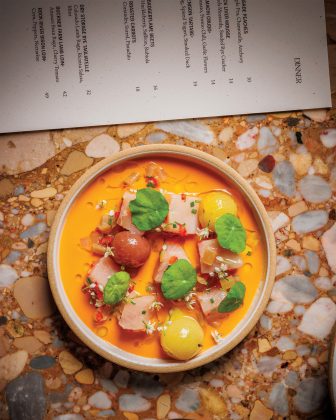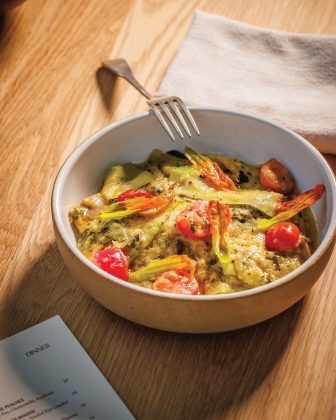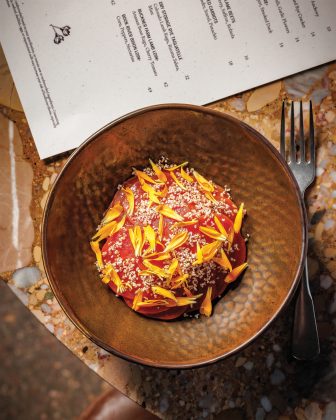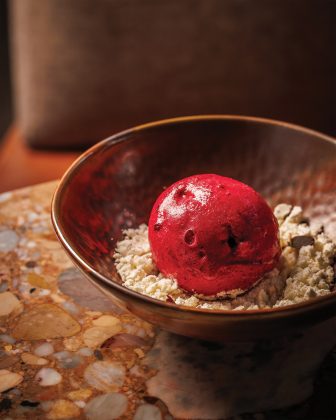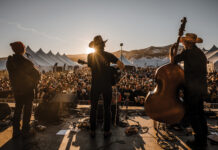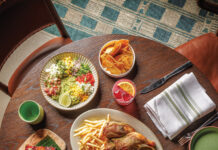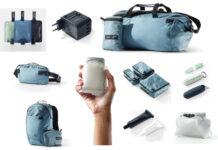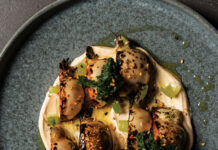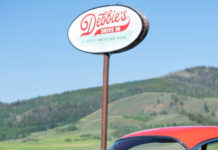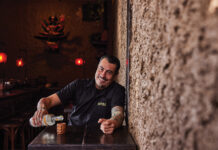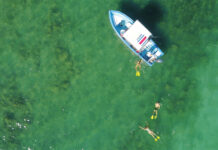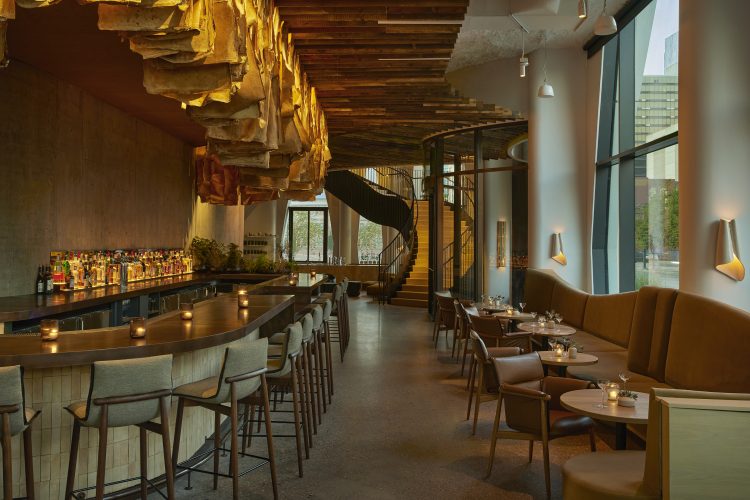
Step into Pasque, and you’ll find more than a restaurant— you’ll find a reflection of Colorado itself. Located inside the newly opened, buzzworthy Populus hotel—already making waves for its striking facade inspired by the “eyes” of an Aspen tree—Pasque takes its name from the pasque flower, the first alpine bloom of spring. Just as the flower signals new seasons, Pasque’s menu shifts constantly, shaped by what the Mountain West has to offer.
“We’ve always been working with farms and producers here, but we wanted our concept to say it clearly,” says director of food and beverage Curtis Landrum. “Pasque is modern American from the Mountain West. It’s about giving guests a sense of place every time they dine.”
That sense of place extends beyond the menu—you’ll find nods to Colorado living throughout. Look overhead, that’s reclaimed snow fencing (the kind you see lining the highways in the high country), and above the bar, cascading down with understated drama, a canopy of mushroom leather, a sustainable alternative to animal hide. “If you’re in this space, you should know you’re in Colorado,” Curtis adds. “Everything from design, food, and beverage needed to align.”
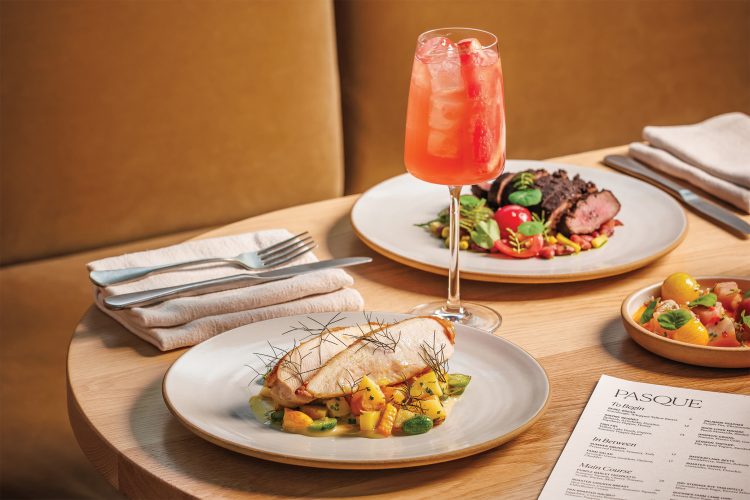
Seasonality drives the kitchen, with dishes evolving week by week. To begin the meal, small plates highlight what’s freshest from nearby farms. One standout pairs Palisade peaches with purple pea and chamomile. The unexpected addition of anchovy may surprise, but its briny depth proves a perfect contrast to the fruit’s sweetness. “It sounds strange,” says executive chef Ian Wortham, “but it works, and that’s the fun of cooking with the season.”
Main courses deepen the Mountain West ethos. At the center of the menu, a Buckner Farm lamb loin from Longmont, is roasted in a coffee ground crust and served over an Anasazi bean ragu—a centuries-old crop native to the Four Corners—with bursts of cherry tomato. “Lamb is iconic here,” Ian says. “It’s part of the fabric of Colorado, and this dish really embodies that identity.”
The beverage program follows suit. Wines are chosen not only for flavor but for farming practices—many biodynamic, organic, and locally produced—while cocktails lean on regional spirits from makers like Dry Land Distillery and The Family Jones. “A Mai Tai wouldn’t make sense here,” Curtis notes. “We want cocktails that feel grounded in this place.”
Looking ahead, Pasque is launching a new dinner series with local farms and winemakers. Menus will be built around either produce or vintages, creating collaborative evenings that showcase the people behind the food. “We want these dinners to be approachable celebrations,” says Curtis. “It’s not about being fancy—it’s about honoring those who care for the land.”
To learn more about dining at Pasque, pick up the print issue of Denver Life Magazine at local newsstands or subscribe to the digital version.

